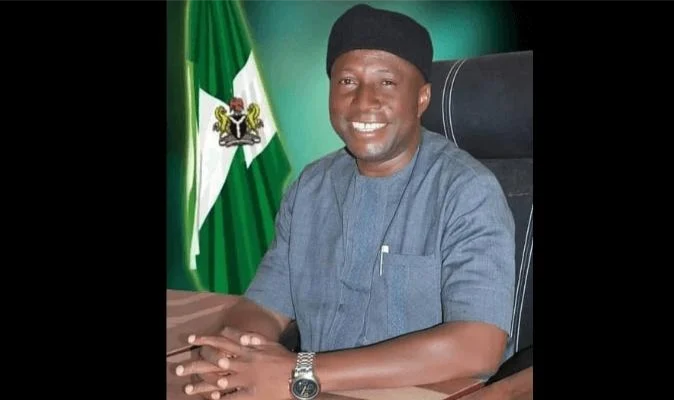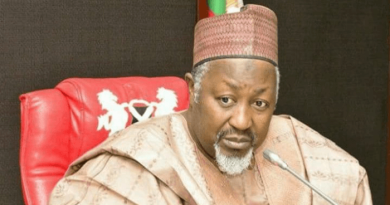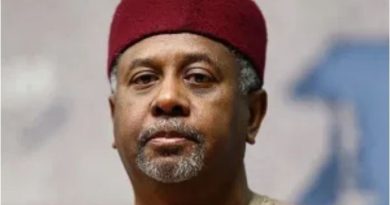June 12 democracy day: Symbol of power not people’s freedom – Professor Uji
Nigeria’s Democracy Day, celebrated annually on June 12, is marked by patriotic speeches and celebrations, but many critics argue that it remains a symbolic gesture benefiting just a few.
Terlumun Wilfred Uji, a professor of Social and Economic History, in the Department of History and International Studies at the Federal University of Lafia (Fulafia) described Nigeria’s democratic celebration as a “sham and illusion,” emphasizing its exclusionary nature.
In an exclusive interview with BusinessDay, Uji pointed out that the Nigerian democratic experience is historically shaped by the dominance of three major ethnic groups—the Hausa, Yoruba, and Igbo.
He traced this tripartite system back to colonial legacies that entrenched a structure of power-sharing rooted in ethnic and regional hegemony.
According to him, Nigeria’s First Republic (1960–1965) demonstrated how patronage politics and ethnic allegiance overshadowed national unity and democratic values.
“The democratic experiment was never about emancipation or justice for all Nigerians. It was an arrangement for ethnic control and political dominance,” Uji said.
He argued that rather than advancing a just and egalitarian society, Nigeria’s democracy is driven by the desire to rotate power among ethnic elite.
He contrasted this with the ideological roots of democracy in the French and American revolutions, which were centered on liberty, equality, and the protection of human rights.
Unlike those revolutions, he said, Nigeria’s June 12 struggle was more about regional power assertion than a genuine quest for democratic governance.
The former Executive Secretary Teaching Service Board (TSB), Benue state questioned the true impact of the June 12, 1993, presidential election annulment and the subsequent pro-democracy struggle by NADECO.
“There are different answers and perspectives to the question raised above, what was the centrality of the NADECO struggle. Looking back at history, with the benefit of hand sight, has the democratic struggle of June 12 produced broad based benefits to all Nigerians, irrespective of ethnicity and regionalism, in terms of the how political power and national resources is shared, what section of Nigeria has exploited the June 12 struggle to her advantage in relation to other minority ethnic groups of Nigeria.
“What was the exact point in the democractic struggle of the twelfth of June, 1993, that was spearheaded by the National Democratic Coalition Forces that was led by Chief Moshood Abiola, Bola Ahmed Tinubu and all the leaders of the Yoruba Afenifere Group. Has the June 12 legacy delivered political equity and development to all Nigerians? Or has it solidified the dominance of the Yoruba and Hausa elite?” Uji asked.
He maintained that the institutionalisation of June 12 as Democracy Day by former President Muhammadu Buhari was not to honor all Nigerians, but to entrench elite interests.
“Former President Muhammedu Buhari laid the foundation and framework for the institutionalisation of June 12, not to serve the interest of minority groups in the quest for a free and just society, but, to serve the preponderance of interest of the tripartite system. The celebration of June 12 democracy day is not necessary a celebration of freedom for minority ethnic groups who have become preys and victims in the face of violent ethno-religious conflicts in recent years in Nigeria.”
The professor further decried the continued marginalisation of minority groups, who he said remain victims of violent ethnic and religious conflicts across the country.
Citing the rise of militia herdsmen, Uji claimed there is a deliberate occupation and decimation of minority populations, especially in the North-Central region.
“There are vexed issues of freedom and liberty which the Nigerian State under the tripartite system has continued to deny and refuse minority groups. There are many issues to illustrate this point but I will take just one of these issues here, the institutionalization of herdsmen occupation of Nigeria.
“Since the era of President Mohammedu Buhari, There has been a systematic and deliberate genocide and decimation of minority ethnic groups in Nigeria under the tide and wave of expansion of militia herdsmen across the Sahel in partnership with their chief herders in Nigeria. Let’s take Northern Nigeria for an example, herdsmen under different forms of disguise have unleash terror and mayhem, sacking populations, with the attending dislocation of economic activities. In Benue, Plateau, and Zamfara, communities have been sacked by armed herders while the government stands by”; he noted.
He described the result as a humanitarian disaster that has displaced millions and undermined the very ideals Democracy Day is meant to celebrate.
Uji likened Nigeria’s current political structure to pre-revolutionary France and antebellum America, where elites flourished while the masses languished in poverty.
“Just like chattel slavery, today’s Nigerian democracy traps millions in cycles of poverty, violence, and state neglect,” he lamented.
He cited the Boko Haram insurgency as another failure of the democratic state to protect citizens’ rights to freedom, security, and education.
“The abduction of the Chibok and Dapchi schoolgirls showed the state’s inability to defend its people,” Uji said, calling it a stain on Nigeria’s democratic record.
The university don emphasized that economic empowerment and social welfare are key indicators of democracy, yet over 70% of Nigeria’s rural population remains in poverty.
Uji rejected the notion that Nigeria’s slow democratic growth is due to time, citing China, Russia, India, and Pakistan as nations that overcame early developmental challenges.
He said Nigeria’s problem is not time but the flawed system of leadership recruitment driven by ethnic patronage and zoning agreements.
“Since 1999, power-sharing arrangements have perpetuated a political elite class while excluding merit-based leadership”; he stated.
The Don concluded that until Nigeria dismantles the tripartite power structure and embraces inclusive, merit-based governance, democracy will remain an illusion for most citizens.
“Until Nigeria breaks away from this vicious circle of bourgeoisie metamorphosis of politics and democracy, development and the ideas of democratic values will continue to be elusive and illusive,” the don said.





